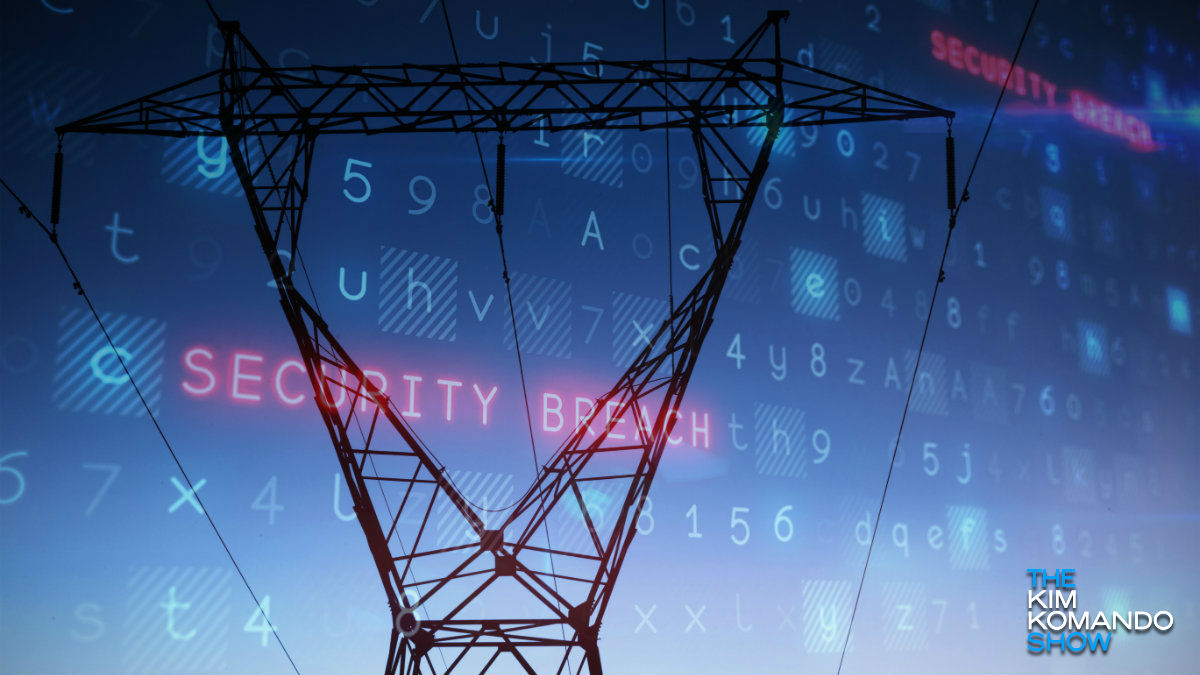Israel has introduced a new kind of weapon in its conflict with Hamas, Hezbollah, and Iran. It’s not what you’d expect.
Don't fall for these scare tactics that try to keep you from voting

The 2020 election is less than a week away, and voters are already reporting unusual activity both on and offline. Between robocalls, scams and foreign disinformation, there are plenty of reasons to stay vigilant as we make our way towards Election Day.
One of the biggest stories involved the government of Iran, which attempted to interfere in the U.S. election by masquerading as the Proud Boys group and sending targeted threats to voters. Tap or click here to see how Iran and Russia are meddling in the election.
But now, voters have to contend with even more blatant attempts at disinformation from bad actors. Not only are people reporting malicious robocalls with lies about candidates and polling places, but a robocall campaign was also discovered with fake information about mail-in ballots and voter information. Here’s the truth behind calls and texts coming your way.
Even more voter disinformation to worry about in the runup to Nov. 3
Voters across the nation have seen their phones blow up with contradictory information leading up to the 2020 election. There are plenty of calls and texts coming through with statements about candidates and parties, which is normal. But there are also stranger, darker messages circulating that seem to blur the line between fact and fiction.
Some of the calls and texts seem benign at first — with simple statements about how your polling location has changed or how a candidate is dropping out. But these messages are completely false. They’re part of active disinformation campaigns designed to confuse voters and decrease turnout in the election.
Here’s a perfect example: A call coming from “Project 1599.” This robocall begins with a statement from someone named Tamika Taylor with a warning about mail-in voting. She claims that mailing a ballot will land your information in a public database that police, creditors and the government can use to take your money and force vaccinations upon you.
None of this information is even remotely true. All voting by mail does is send a ballot to state election officials — who already know your identity and where you live. Voter rolls are not shared with police, banks or the CDC. The fact that vaccines are even mentioned in the same sentence seems random — but the goal is to prey on people’s fear and doubts.
This is just one of many disinformation robocalls circulating right now. The Project 1599 calls were the subject of a lawsuit in mid-October, and the judge presiding the case ordered a temporary restraining order against the people responsible. But that hasn’t stopped robocall operators from sharing outlandish claims about political violence, communist uprisings and vote harvesting.
And this doesn’t even begin to cover the sheer volume of political scam calls making the rounds this month. Tap or click here to see what you can do about political scam calls.
How can I protect myself from disinformation robocalls?
There are several scams and disinformation calls circulating, but all of them tend to bank on fear and confusion of how political campaigns work.
Hackers selling info on 148 million voters - Here's what you can do

Intelligence agencies have identified attempts by two foreign governments to interfere in the 2020 Presidential Election. According to reports from the Department of Justice, Iran and Russia — both of which oppose U.S. interests — have worked to sow discord and break down trust in the election process.
Israel's powerful non-lethal cyber weapon
This is interesting: China, Russia and Iran are the masterminds behind the social media conspiracy theories swirling about Princess Kate. Their goal? To cause panic and destabilize the U.K. They were forced to switch gears when Kate announced her cancer diagnosis. Now, internet conspiracies claim Kate has been replaced by a lookalike.
People in Iran are scared of spiders. But in Iraq, no phobia. (Get it? Arachnophobia? Oh, tough crowd today!)
The internet is buzzing about 'murder hornets' - what you need to know

Our civilization went into the year 2020 thinking we’d be able to see our way through the new decade clearly. Now, most people can’t wait for 2020 to be hindsight.
Within the span of a few short months, war nearly broke out with Iran, the Pentagon officially declassified UFO footage and a global pandemic shut down nearly all aspects of our normal lives. It’s no wonder so many of us are sick to our stomachs with anxiety. Tap or click here to see 5 apps that can help you cope with stress.
8 things to do now in case Iran attacks the US

Think about how much of your life is spent online. From the moment you wake in the morning to the time you finally go to sleep, you’re constantly checking emails, messaging friends and family, checking bank accounts and so much more — and all of that can be done with your smartphone.
America's drinking water is under attack
Water systems in Kansas, Texas and Pennsylvania have already been hit by hackers in China, Russia and Iran. Plus, clothes that block 5G waves, AI coming to Alexa, and Walmart’s new digital pricing. We also chat with Joseph Cox about his book “Dark Wire,” which is about Anom, the FBI’s secret app used by criminals.
We’re skewed: The U.S. House of Representatives just put its foot down, banning data brokers from selling your info to China, North Korea, Russia and Iran. Rulebreakers will face heavy penalties from the Federal Trade Commission. Spoiler: It’s too late.
Still shaking my head: Facebook and Instagram proudly announced this week they’ve closed the accounts of Iran’s supreme leader, Ayatollah Ali Khamenei. Just one question: Why, in heaven’s name, did the Ayatollah even have an Instagram and Facebook account to begin with?
